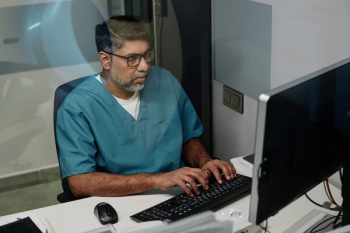
No, You Can’t Have the Exact Same Thing
When you come to the job negotiation table, do you have all your facts in front of you?
We radiologists don’t have a lot of uniformity in the way we work. There just aren’t enough of us to make that happen. Virtually endless heterogeneity exists not only regarding the jobs available to us-especially when the market is as hot as it is, but also as to what the rads bring to the table with their credentials, skills/talents, and personal experience.
Such a broad range of those variables means that no two radiologist-job matchups will ever be quite the same (although a couple of the bigger players in the field have tried to make it so within their ranks). One might thus find it naïve for a rad considering a given gig to seek parity with other rads who are working or have worked in the same place.
Preparation is key
Still, when operating in an information-void, grasping for whatever bits of intel can be found feels preferable to making completely-baseless guesses. And rad A might consider it reasonable that, if his/her responsibilities in a prospective gig are comparable to those of rad B, there shouldn’t be much if any of a difference in terms of their compensation. Or, if there are differences (such as years of experience, within the gig or prior to it), differences in responsibility/skills and comp should track reasonably with one another.
There are differing opinions as to whether one’s ability to haggle should play a role. If you’re not being hired for your skills as a negotiator, it might be argued, why should it matter whether or not you have a more silvery tongue than the next guy who’s doing the same job as you? I’ve got my own opinions on the matter, but let’s leave that out of the equation this time around.
On top of that oversimplification, let’s say you’ve somehow managed to find yourself in a situation where you know the details of the responsibility/compensation package of the last rad who was hired, before you applied for a gig alongside him/her. And somehow you know that your credentials, experience, etc. are a dead-even match. Surely, under these circumstances you can expect the same treatment?
Related article:
Nope.
Things have changed. Even if the job market is exactly where it was and the entire world outside of the hiring group is identical-let’s say that previous hire was onboarded yesterday-the hiring group is different than it was before that rad joined them. Their needs are not the same as they were. It’s sort of like a Heisenberg Uncertainty Principle of job-hunting.
Maybe they’re no longer quite as hungry for another newbie to take a piece out of their worklists. Or maybe now that the new hire is working one set of hours, the group doesn’t need anyone else during those shifts. So the last guy is working daytime hours that you would have liked, but you’re going to have to do some evenings if you want in.
Or maybe things have changed in your favor. The new hire was just what the group needed to extend the operating hours at its imaging-center, or to take on a new contract covering a small hospital-and it turns out the new demands on the group are beyond what one new hire could do. Now the group is a little more desperate for new blood to live up to its obligations. Meanwhile, the new work is providing more revenue, so there’s more of an ability to pay for your services as the group is semi-desperately trying to recruit you. Supply versus demand.
It’s an awfully complicated task just to figure out what The Other Guy is getting, let alone justifying why you should be given the same or even better. That doesn’t mean one shouldn’t try; indeed, some folks enjoy the challenge. (I even knew one rad-group leader who was disappointed when new hires didn’t wheel-n-deal aggressively enough; he looked forward to the tussle.)
Best, for one’s peace of mind, to recognize the limitations of such pursuits-and to be able to live with the concept of not having seized every last chit on the bargaining-table.
Newsletter
Stay at the forefront of radiology with the Diagnostic Imaging newsletter, delivering the latest news, clinical insights, and imaging advancements for today’s radiologists.












